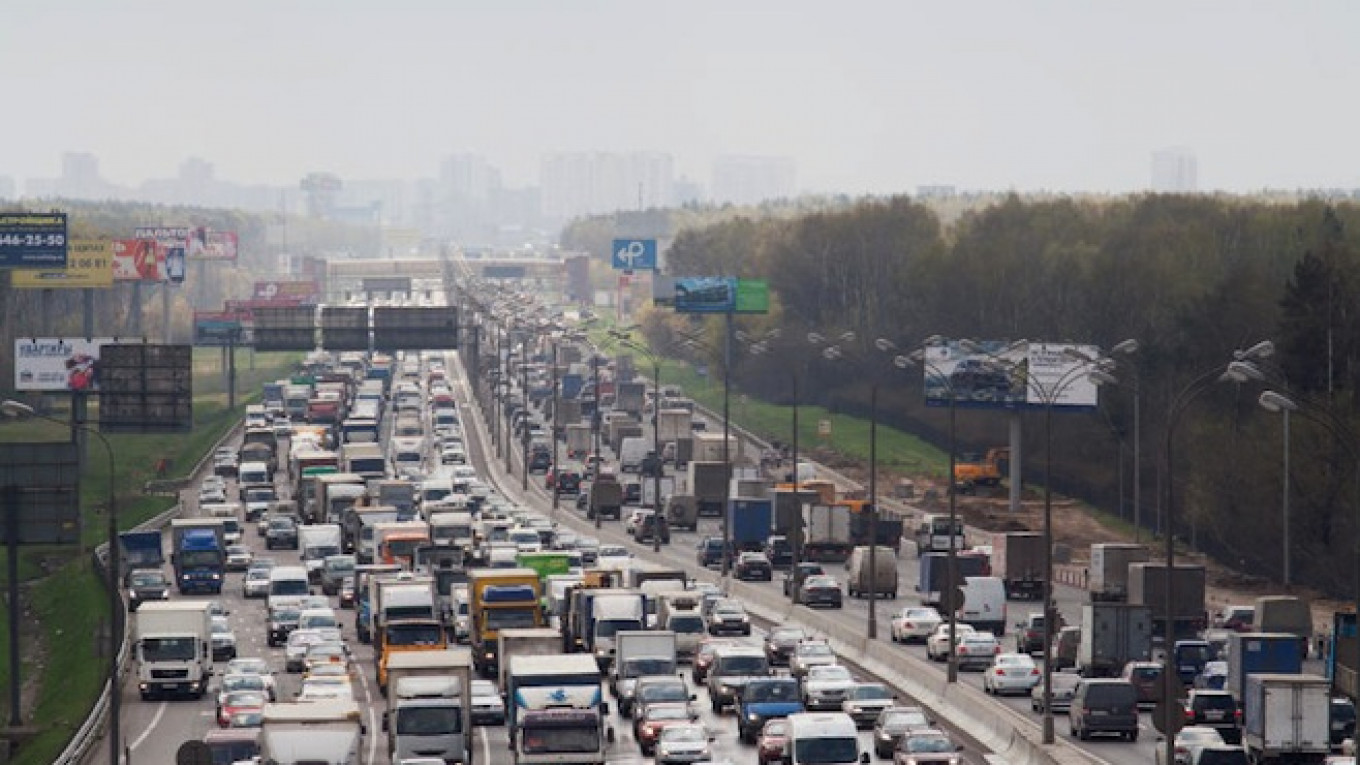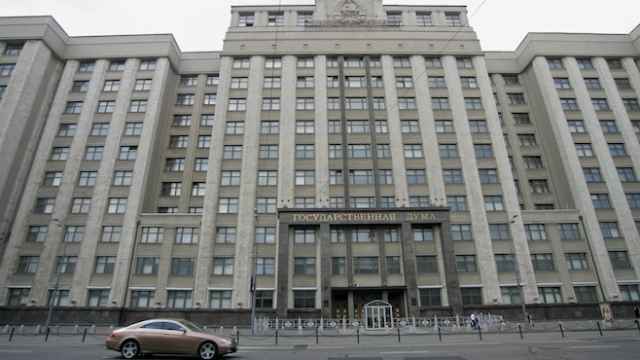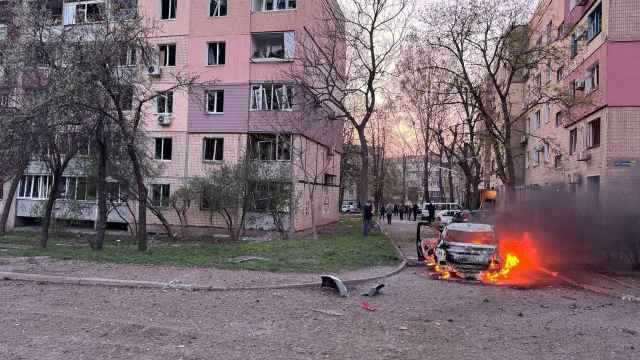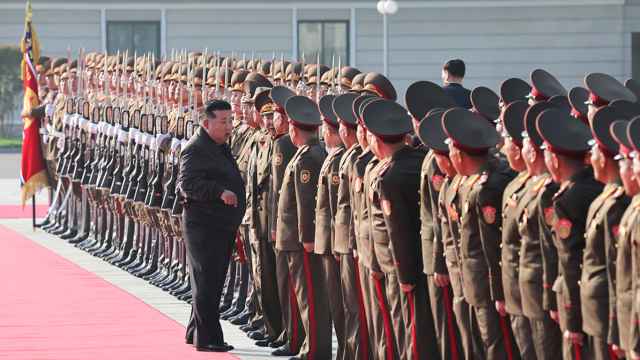Construction of a vast new 530-kilometer ring road encircling Moscow has begun.
Aimed at stimulating development in the areas around the capital and tackling Moscow's notorious traffic congestion, the Central Ring Road is being built in sections through public-private partnerships. The result will be a toll road that Mayor Sergei Sobyanin told radio station Vesti last week would allow 120,000 fewer cars every day to use the Moscow Ring Road — an overloaded Soviet-era highway that currently skirts the city.
State road agency Avtodor picked infrastructure builder Stroigazconsulting to build the 49.5-kilometer first section of the road. Transportation Minister Maxim Sokolov last week oversaw the internment of a memorial capsule near the site of the groundbreaking ceremony in Beliye Stolby, south of Moscow, Interfax reported.
Stroigazconsulting will build the section for 49 billion rubles ($1.3 billion), which is 3.5 billion less than the starting price of the government's tender. The company will contribute 6.8 billion of its own funds, with the remaining 42.1 billion to be stumped up by the state.
Stroigazconsulting won the tender in May, but Avtodor delayed the start of work until it had found a bank to monitor expenditures on the project. Last month, state-owned Sberbank won the right to oversee the 300 billion ruble project.
The Central Ring Road is slated for completion in 2018. About 75 billion rubles each is expected to come from state budgets and private companies. The project will also receive 150 billion rubles from Russia's National Welfare Fund, an oil-revenue-funded piggybank that is being increasingly uncorked to stimulate the stagnant economy.
When complete, the new ring road is expected to take the pressure off the 110 kilometer Moscow Ring Road and allow traffic to bypass Moscow. The government of the Moscow region, which is much poorer than the capital, hopes the road will be a boon to the towns it passes.
Avtodor last week announced a tender worth 64.1 billion rubles for a third section of the road north east of Moscow and one worth 63.6 billion rubles for a fourth, to be built southeast of the capital.
A Message from The Moscow Times:
Dear readers,
We are facing unprecedented challenges. Russia's Prosecutor General's Office has designated The Moscow Times as an "undesirable" organization, criminalizing our work and putting our staff at risk of prosecution. This follows our earlier unjust labeling as a "foreign agent."
These actions are direct attempts to silence independent journalism in Russia. The authorities claim our work "discredits the decisions of the Russian leadership." We see things differently: we strive to provide accurate, unbiased reporting on Russia.
We, the journalists of The Moscow Times, refuse to be silenced. But to continue our work, we need your help.
Your support, no matter how small, makes a world of difference. If you can, please support us monthly starting from just $2. It's quick to set up, and every contribution makes a significant impact.
By supporting The Moscow Times, you're defending open, independent journalism in the face of repression. Thank you for standing with us.
Remind me later.






